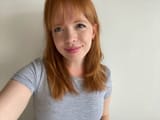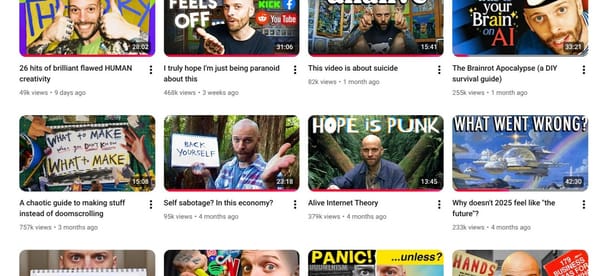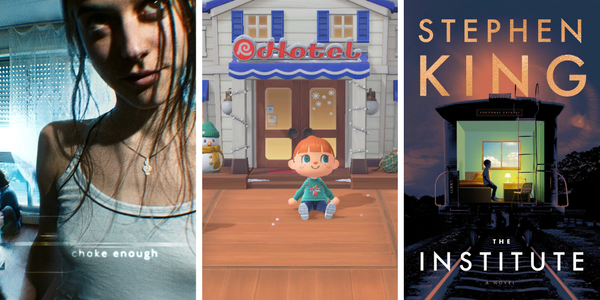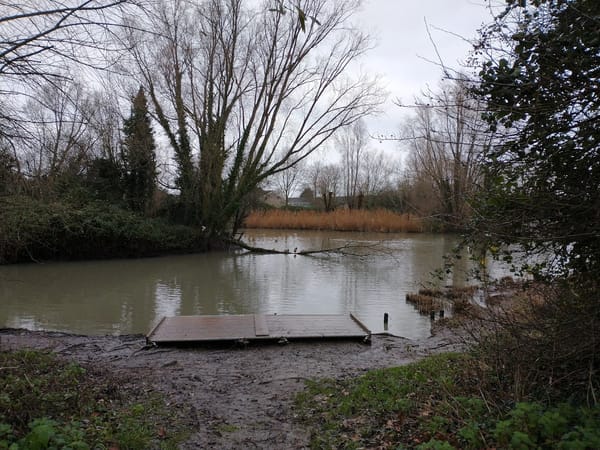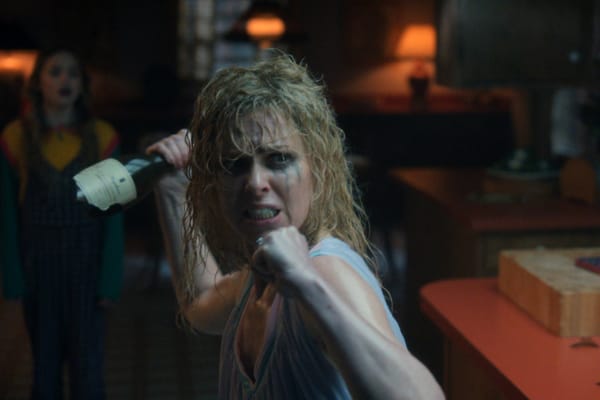Night Time Dreamers
On digging deep to move forward

On any given day, you're likely to hear the voice of Norwegian singer Aurora in our house. Usually, it's my daughter driving it. Aurora appeals to my daughter's compassion, her deep feelings, and her ever-growing concern for the future of the planet. Also, it's just really fun to belt out 'I'm running with woooooolves' over and over again.
If you don't know Aurora, I guess I'll try to describe her, although I'm worried by doing so I'll sound about a hundred years old. She's got a hauntingly melodic voice. She would be kind of mystical if she wasn't so openly human. She lists masturbation, beer, and raving as hobbies. She sings about ancient myths and warrior women and heartbreak and grief and nature while floating around like a wide-eyed nymph in vast, snow-thick forests.
When I was in my late teens, I fell in love with Sia's album Colour the Small One for the same reason my daughter loves Aurora's The Gods We Can Touch: this person is talking about the real stuff. This person isn't self-conscious. This person is unafraid to break herself open and bleed all over the place in order to create something beautiful.

I bought my daughter Aurora's book. It's like a diary of the thought process that went into creating her latest album. I've been reading it myself lately. Trying to glean more information about this woman my daughter loves so much.

I once had a friend who was the polar opposite of me in a lot of ways. On the rare occasions we saw each other, I was in awe of her. She was organized, efficient, confident, and successful. All of the various branches of her life ran like clockwork. She didn't just overcome problems. She swept through them like a hurricane; obstacles were just debris swept up in the force of her life plan. She had a strong intellect and equally strong opinions. She made good money and invested it wisely. She was generous. She was funny and brilliant and always looked put together. (She is still all of those things, I'm sure.)
But she didn't understand my life choices. I knew that. I always - always - felt inferior in comparison. In contrast to her, I was scruffy, disorganised and haphazard. I felt like a child around her, led by my heart rather than my head, a slave to my own emotions and too delicate and sensitive to ever make anything of myself. I would come away from our rare meetings feeling less important, less confident, less special. One time I came away from a catch-up with her feeling so shit about myself that I cried. The world was built for people like her; it was definitely not built for people like me.
I'm not sure why. I have a few friends who are the polar opposites of me and we all get along quite well. But this friendship was something else. We may as well have been alien species. And something about our communication styles clashed. I felt like we couldn't really know each other on a deeper level. It's the first time I've ever felt like that with a friend.
Neither of us fought very hard to keep the friendship going. I've made my peace with that now. I was never very good at staying in touch with friends, and losing them makes me feel like a failure. But this one just wasn't meant to be.
This is a pattern with me. In my twenties I made friends with a lot of successful and confident women and would always feel like a bit of a pillock in comparison. And when you feel inferior, you don't always genuinely feel happy for other women when they succeed. Your initial gut response can be jealousy, and jealousy can turn to bitterness, a dark and ugly thing.

One of my best friends, Sarah, loves personality quizzes. Sarah is analytical and investigative. She likes to uncover the root of things. Over the years I have completed many personality tests, and almost all of them are because Sarah sent them to me.
I completed the Myers-Briggs test once. I didn't really relate to it. I had strong opinions about these things in my twenties and I thought that personality tests were like middle-class horoscopes; vague enough to make you feel understood, but no real science behind it. I've since learned that I was stupid. There is plenty of science behind it. And it's not meant to be prescriptive. It's meant to make you understand yourself and your motivations.
A few years ago, I was in Sarah's garden. Sarah wasn't there. I was watering her plants and feeding her cat while she was on holiday. My kids were bouncing on their trampoline and didn't want to go home yet. With nothing to do, I opened up the Myers-Briggs test again, and this time I read it properly.
This is me:
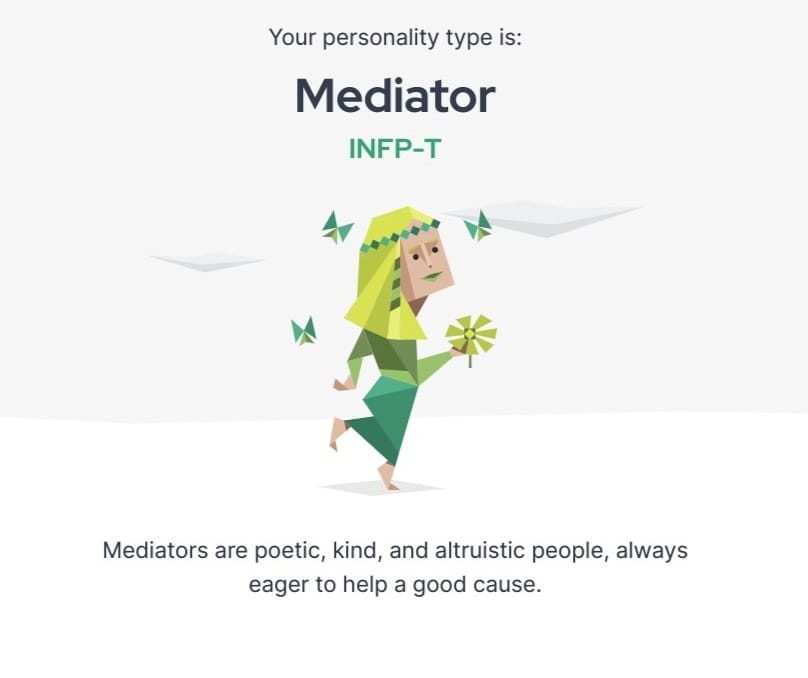
Everything I read made sense. The strengths, the weaknesses, and the reasoning behind my strange actions sometimes. Like the way I always leave things to the last possible second, the way I run away from conflict and doubt myself all the time. This is me: I am the mediator. I like making stuff and I don't like arguing. And I was probably right in that the modern world is not built for people like me, because mediators don't tend to easily slot into capitalism without at least feeling really pissed off about it.
I've been thinking about this because I watched a lovely video called Aurora Aksnes: The Curse of Fear on INFP (and other) Creatives. In the video, creator An Altered Aspect dives into Aurora's motivations and creative processes, and he considers the question of fear. He suggests that 'Aurora is INFP without the fear'.
Fear was a huge factor for me once. In my late twenties and early thirties, I started diving into writing fiction. But there were all sorts of barriers. I felt I couldn't swear in my writing, or write about sex, or make my characters mean, or throw strange, mystical elements into the mix. Even though my heart yearned to do all of those things because that was the truth of what I was feeling and seeing in other people.
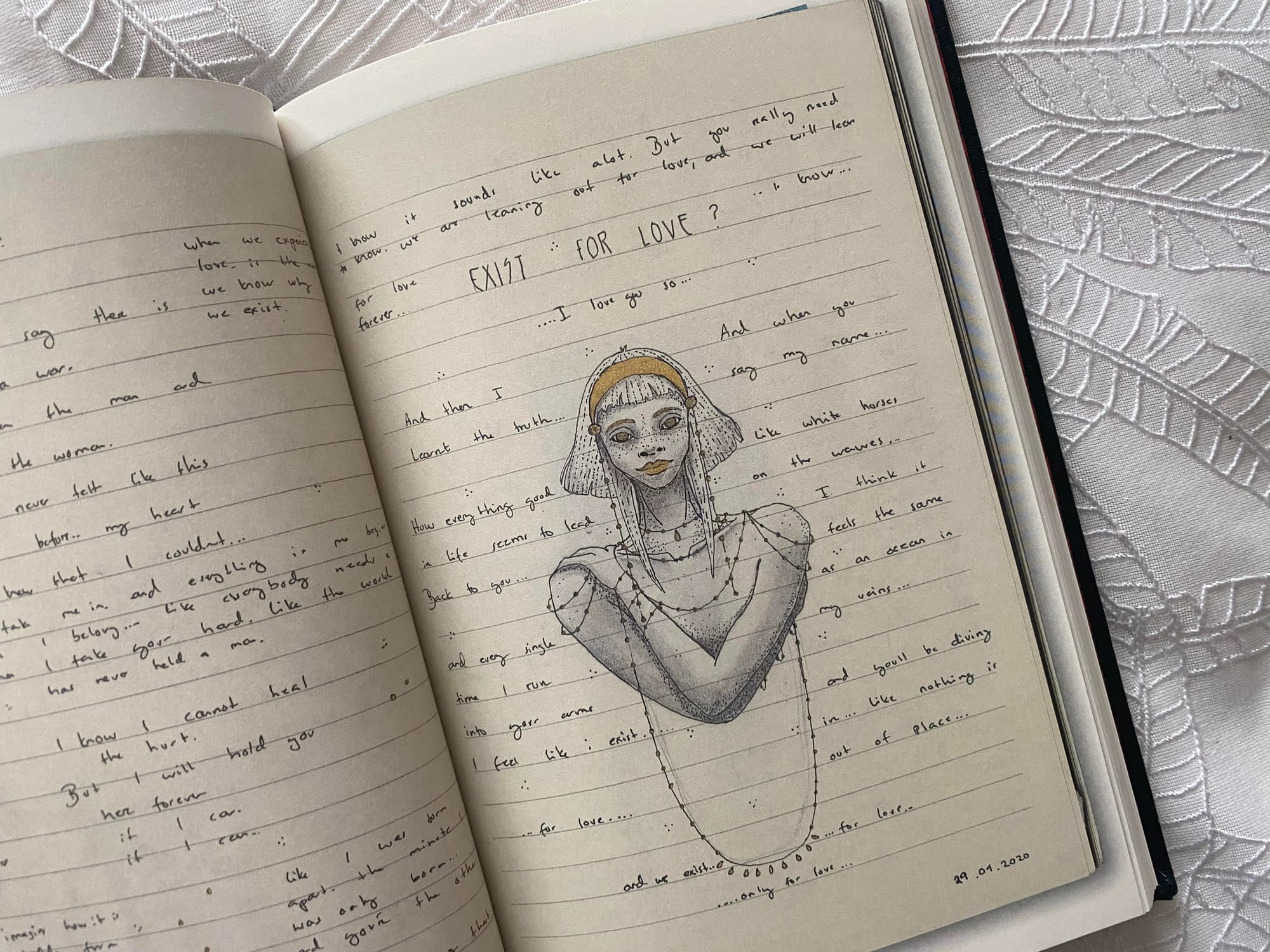
And then I got over that. And now I write with my whole heart, not just some of it. The further I get into my thirties the more I push past the fear. I know there are people out there who think I'm making strange and wayward choices; I genuinely don't care anymore. I know myself. I can't waste time worrying about it because it won't get me anywhere.
But the ghost of the fear still lingers. Every time I hit 'publish' on a more heartfelt post. Every time I submit a short story to a competition. Every time I delete a sentence that I think is too 'out there'. Something in the back of my mind says: but what will people think of me?
It's a little more complicated because Aurora might be autistic (she's hinted at it, but not really spoken about it in depth). I have no idea how much that factors into her fearlessness, her ability to be as weird as she wants to be. But I do find her really inspiring. She's just herself. Whatever creative spark comes into her brain, she allows to flow through her entire body. She makes art from the darkness within herself. She lets people see it. She laughs and dances in the presence of her own demons.
One day I'll ditch the fear completely, I reckon. It will be a glorious day.

I think the more you dig into yourself, the better prepared you are to deal with life. I always felt it was selfish when I tried to find out more about myself. It's very me me me. But actually, it's been invaluable. I've learned about my own weaknesses, my habits and compulsions, and why I have them. It makes it easier not to just get stuck in the same coping mechanisms, the endless loops of behaviour that only hurt me in the end.
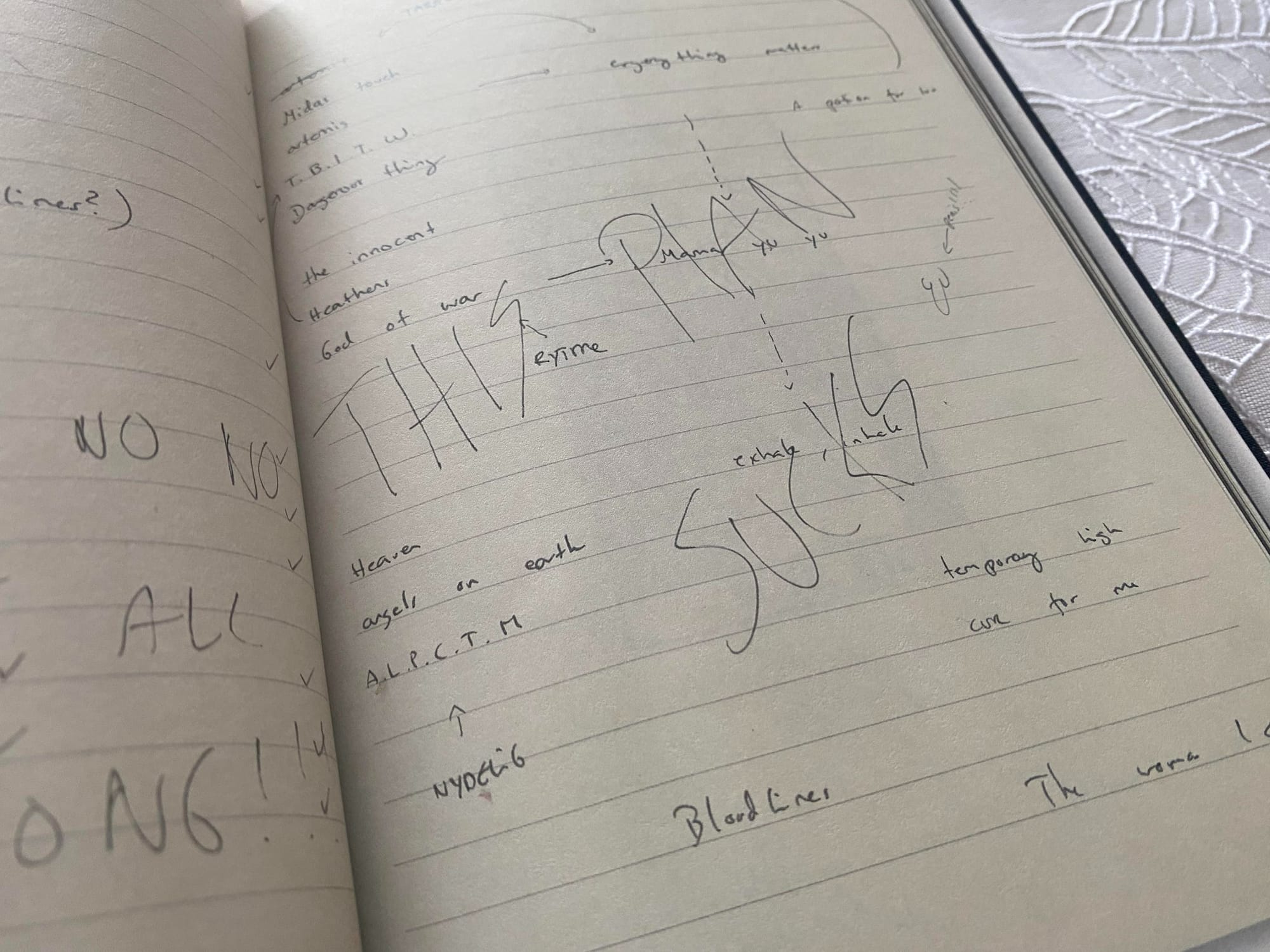
It also helps me to move on from that feeling of not being good enough. At one point, I was the only introvert in a group of hugely extroverted friends; I'd watch them take on more and more activities, more social events, high-pressure jobs, volunteer work, more roles at church than they already had. And I could never keep up. I felt perpetually exhausted to the point where I woke up in tears every day. I didn't get why I couldn't just be like them: bouncy and energized and full of zest.
And it did turn into jealousy. It did turn into bitterness. Every time I saw a woman doing something amazing I felt a pang of something. Sadness. Fear. Loneliness. I said I championed women but there was part of me that was desperately trying to compete with everything they did.
Then I realised who I am. And suddenly it didn't matter anymore. That feeling of not being good enough just melted away. All of it was worth it: the digging into my self, the evenings of journalling and researching and trying to figure out why I am this way, the endless buying of nice stickers (don't look at me like that, I needed motivation). Cheaper than therapy, anyway. It unlocked something in me. Now I'm happier. When women around me succeed, I'm over the moon. Fully. With no side dish of shame alongside it. I've done the work and because of that I've pushed myself and achieved way more than I would have been able to do otherwise.
There's a lot of talk about what the point of INFP-Ts are in modern society. What do we acutally offer to the world? We can't all just float around writing poetry and thinking lofty thoughts. It's not very productive, is it. But we can offer a lot: abstract thought, problem-solving, empathy, and open-heartedness. We're more willing to leap into the darkness and play around with it. We can influence things. For better or worse.

So Aurora is like me, without fear. Of course, she's not really. We don't all fit into neat boxes. She might be an INFP-T or whatever, but she's, you know, Aurora. She grew up in the beautiful forests of Norway. I grew up on a council estate in Hastings. She spends her days creating and making art; I spend most of my days working and studying and looking after my kids. She's young and vibrant and I am quite old and tired in comparison. You get the idea. We're from different worlds. But if we met, we would understand each other on some level. That's quite nice to know.
In the book, Aurora explains why she is fascinated with Greek mythology:
'Because they were flawed. And there was a God/Goddess for everything. Even the things that are considered a sin by so many of the more modern religions ... and I love the idea of worshipping something flawed.'
I find this really interesting. A past version of me would have been a bit worried about my daughter having this book. And now I just listen. I understand. Aurora has her own experiences with modern religion that have left her wary. I get the fascination with flaws. With imperfection. It makes you feel better. Less lonely, somehow.
I don't want my daughter to idolise Aurora. I don't really want her to idolise anyone. People are imperfect, and they will let you down. You have to allow people to be human. I idolised my former friend, in a weird way. Held her up as an example of a Strong Woman Doing Things Right. When really, she was just as flawed as I am, and we both bring different things to the table.
I'm on the hunt for more female songwriters my daughter and I can listen to together. In the meantime, I'm trying to be more Aurora: more human, less afraid. In the video I mentioned earlier, the creator talks about letting go. Allowing yourself to make stuff without fear, allowing yourself to be weird and dark and a bit bonkers. Later, you can refine it. You can pick at it again and again until your weirdness becomes a thing you have made, something you can share with people.
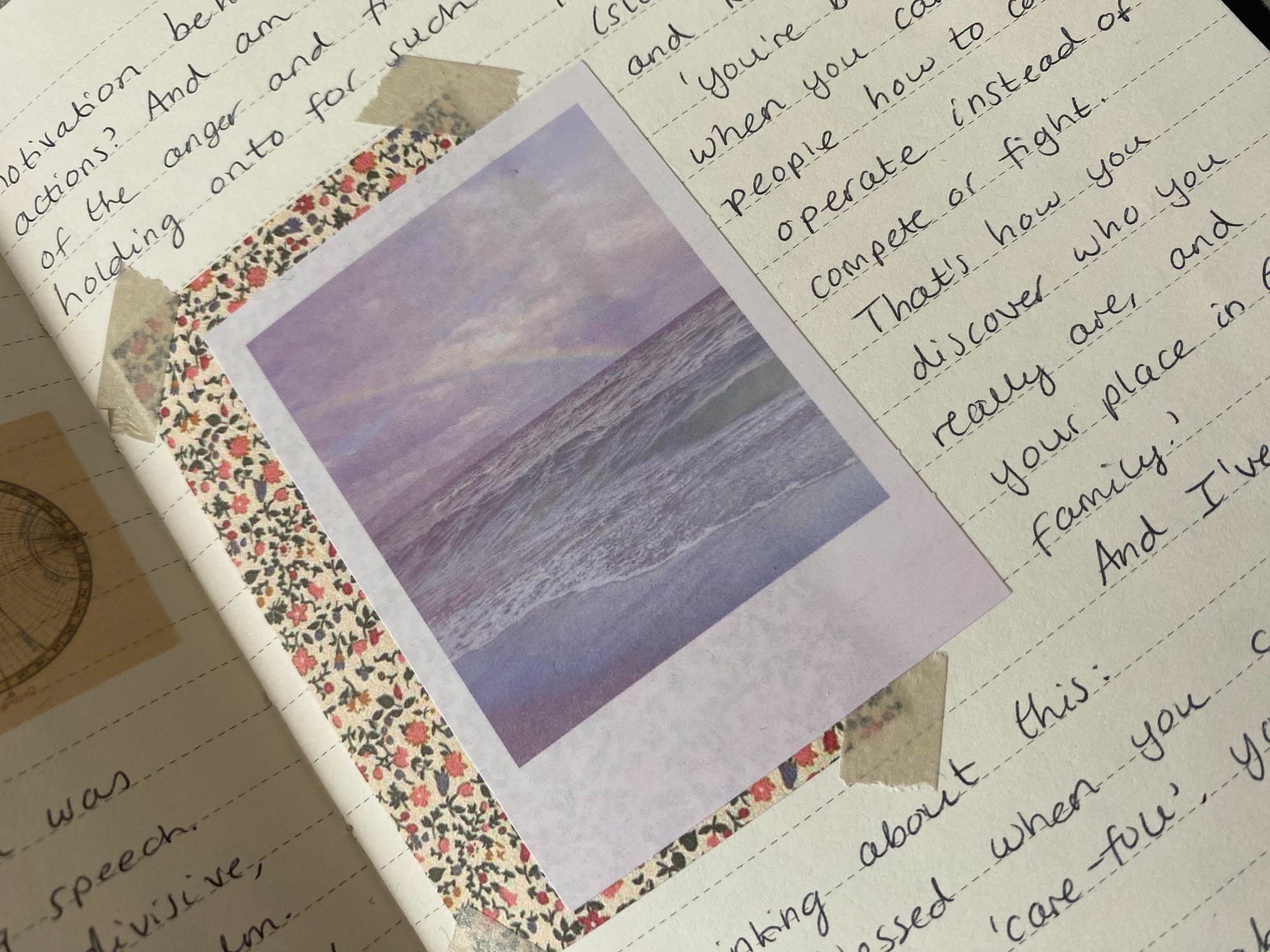
We create signs all the time. We send out signals with our words and our behaviour and I guess that's one of my strengths, to be able to do that consciously.
So if you're reading this, it's a sign: be weird. Go deep. Push yourself. Make stuff that is loud and crazy and dark and funny and strange or whatever it needs to be. Scare yourself, maybe. Your mind and your notebook or your canvas or whatever, they're safe spaces. You don't need to let anyone else into it. Go wild. Create without fear. Go all in. You deserve the freedom that comes with it.

